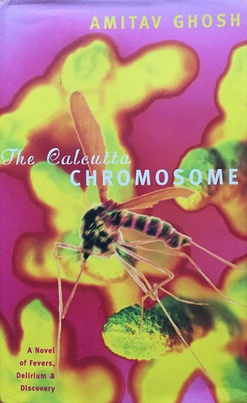Plot summary
The novel begins with the story of Antar, a resident of the future New York doing data processing for the International Water Council. A chance bit of data causes Antar to recall a bizarre encounter he had with L. Murugan, an employee of the LifeWatch organization (Antar's former employer), who disappeared in Calcutta in 1995. Murugan had asked to be transferred to Calcutta because of his fascination with the life of Sir Ronald Ross. While Antar tries to track Murugan’s movements in Calcutta through the digitized archives, another narrative thread follows Murugan directly as his path brings him into contact with a variety of other characters, some more savory than others. The plot is quite complex and its timelines are deliberately mixed up, switching from Antar's time to Murugan's to Ross's and back over the course of as many chapters.
Through his research into old and lost documents and phone messages, Antar determines that Murugan had systematically unearthed a deep secret lurking behind Ross's malaria research — an underground scientific and mystical movement that could grant eternal life. Loosely described, the process of securing this form of immortality is as follows: the disciples of this movement can transfer their chromosomes into another's body, and gradually become that person or take over that person. In the novel, Ronald Ross did not discover the mysteries of the malaria parasite; it was a group of underground practitioners of a different, mystical "science," natives of India, who helped to guide Ross to the conclusions for which he is famous. These native Indians provided Ross with clues in the belief that in the moment Ross made his discovery, the parasite would change its nature. At this point, a new variant of malaria would emerge and the group's research using the chromosome-transfer technique would advance even further.
This page is based on this
Wikipedia article Text is available under the
CC BY-SA 4.0 license; additional terms may apply.
Images, videos and audio are available under their respective licenses.
